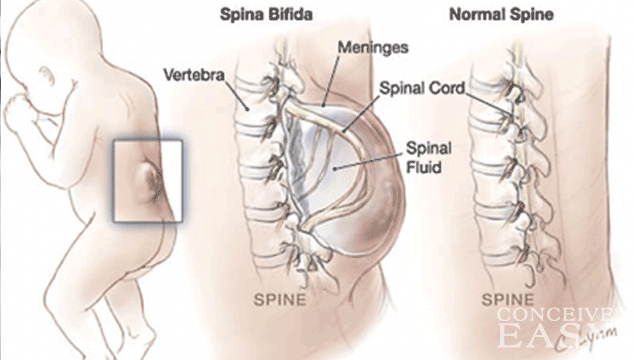![]() The information provided by our expert should not constitute a diagnosis of your condition. Always consult a medical practitioner or healthcare provider for a formal diagnosis. By making use of this content, you agree that ConceiveEasy and the expert assume no liability.
The information provided by our expert should not constitute a diagnosis of your condition. Always consult a medical practitioner or healthcare provider for a formal diagnosis. By making use of this content, you agree that ConceiveEasy and the expert assume no liability.
Spina bifida is a neural tube defect that affects babies early on in a pregnancy. It is characterized by the incompletely closing of the area around the spinal cord. It most commonly surfaces around the lower back, but it can also surface in the middle of the back or the neck. Claim Your 20 Free Pregnancy Tests – Click Here
It is believed that a baby who has spina bifida may develop it because of a combination of environmental and genetic factors. The lack of folic acid early in a pregnancy is also believed to make a difference. Women who have had one baby with the condition are about 4% more likely that their next child will also have this condition.
There are many issues that may surface when a baby has spina bifida. If they are able to survive the condition, they may have issues being able to walk or have problems with their bowel or bladder control. However, it is uncommon for the baby to have learning problems.
A surgery can be completed after the baby is born to close up the area around the spinal cord. Sometimes, they can also be closed before the baby is born. Some children may require crutches or wheelchairs in order to be mobile if they have had this condition.










Comments